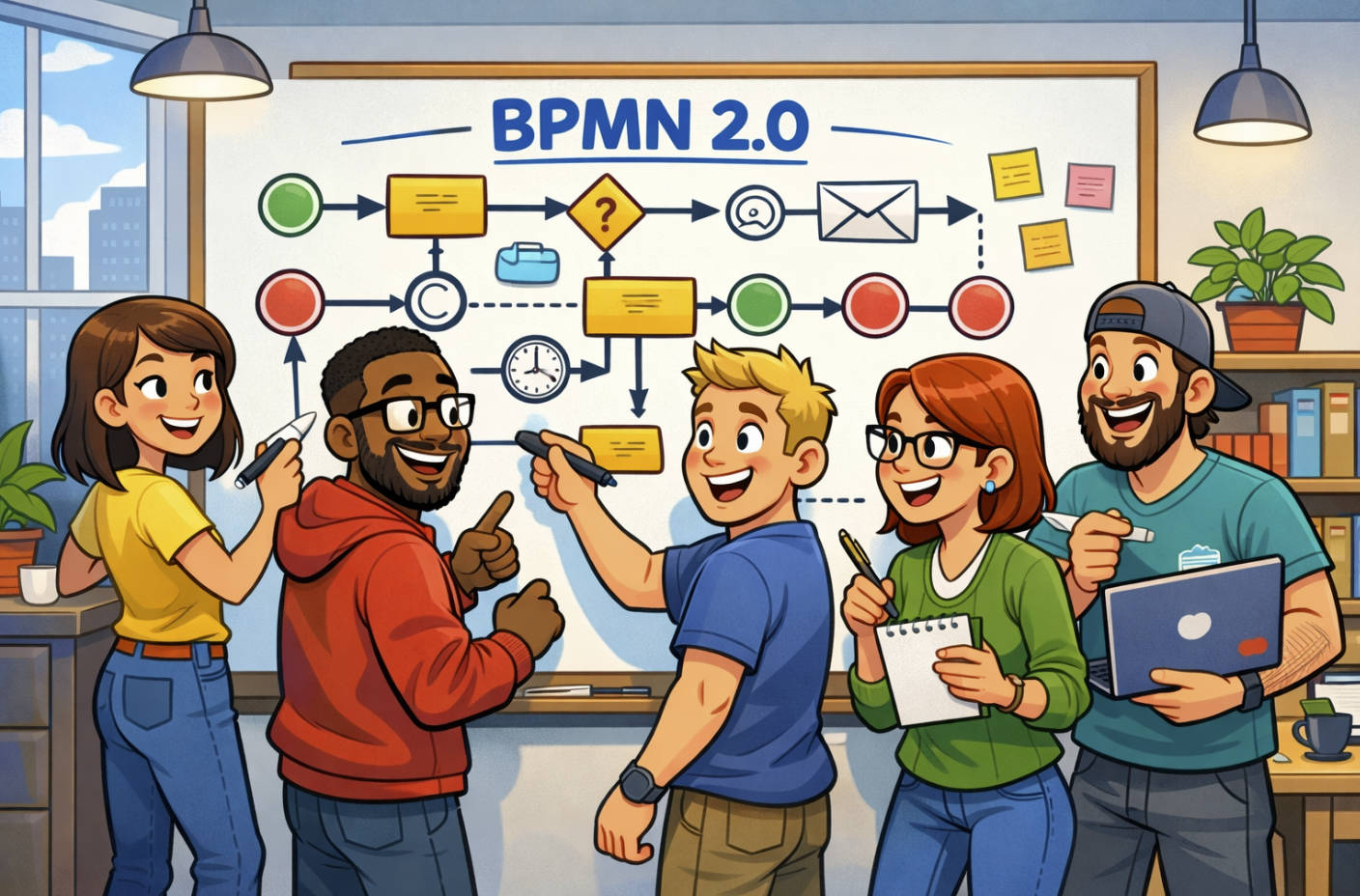Being a business process analyst is not just about systems and workflows.
It is about people.
Processes only succeed when people feel understood, supported and valued.
That is why emotional intelligence (EQ) is the greatest skill an analyst can have.
Technical ability will help you create diagrams and documents.
But it is your people skills that make change stick.
🧩 Listening Beyond the Surface
Stakeholders often come to you with frustrations, worries or conflicting needs.
If you only listen to their words, you miss what they truly mean.
Active listening means paying attention to tone, body language and what is not said.
By showing empathy, you can uncover the real drivers behind resistance.
Most of the time, pushback comes from fear, not stubbornness.
When people feel heard, they are more open to solutions.
🤝 Building Trust in Every Conversation
Trust is earned through consistency, honesty and humility.
As an analyst, you are often the bridge between leadership, IT and end users.
Your credibility depends less on what tools you use and more on how you treat people.
If you show respect and curiosity, stakeholders will trust you to guide the process.
Even when decisions are tough, trust ensures people stay engaged.
It is not about being the loudest voice.
It is about being the voice that makes others feel valued.
🛠️ Workshops That Focus on People
Workshops are not just about sticky notes and diagrams.
They are opportunities to connect with people, understand pain points and share ideas.
The best workshops are less about documentation and more about conversation.
When you create a safe, ego-free environment, people are honest and collaborative.
This is where meaningful process improvement begins.
An analyst with EQ makes workshops energising instead of draining.
They turn messy discussions into clear insights everyone supports.
🌍 Why EQ Beats Technical Skills
Technical knowledge is important.
You need to understand systems, data and process flows.
But these skills are not what make you successful in the long run.
Anyone can learn a tool or a methodology.
Not everyone can manage conflict with empathy or bring opposing voices together.
That is why EQ is not a soft skill, it is a core business skill.
Organisations thrive when analysts lead with people-first thinking.
💡 Advice from Experience
Over the years, one lesson stands out.
Processes fail when people feel left out.
To succeed, give space for every voice, even the quiet ones.
Take time to explain why changes matter, not just what they are.
Recognise that resistance is part of change, and meet it with patience.
Above all, remember that process analysis is not about documents.
It is about helping people work better together.
That is the true value you bring.






